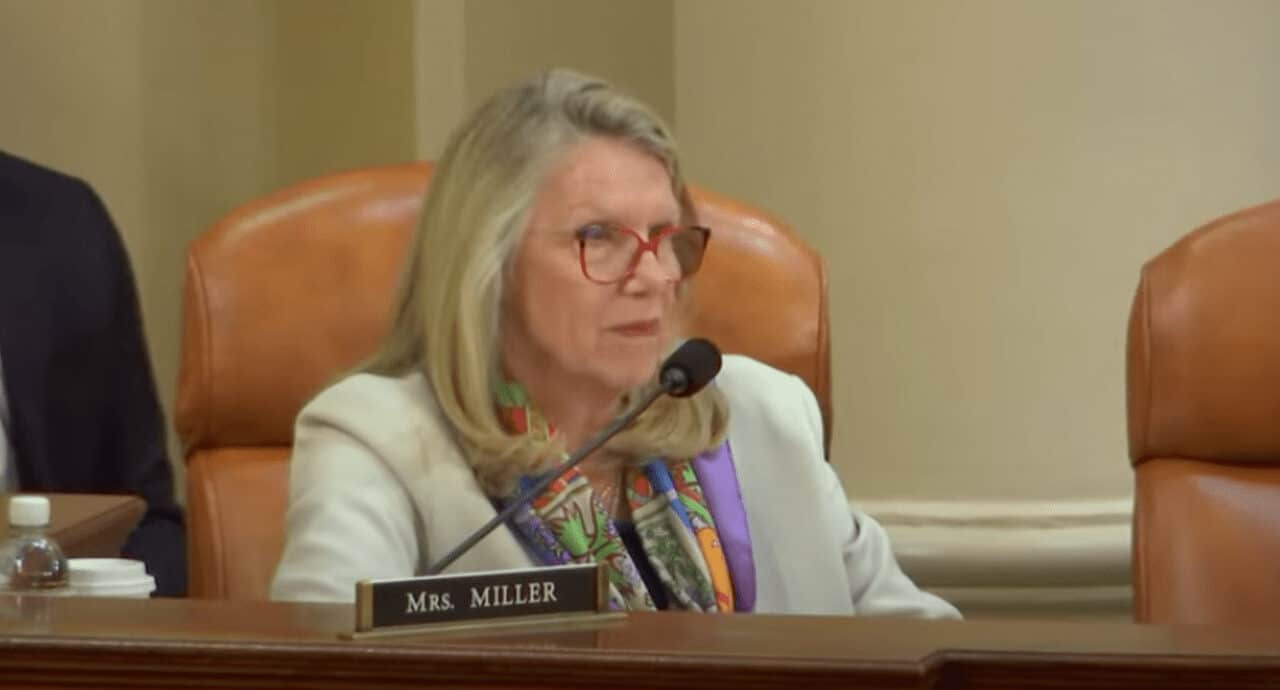 Congresswoman Miller at Werfel Hearing by United States Congress is licensed under CC.
Congresswoman Miller at Werfel Hearing by United States Congress is licensed under CC.
“Congress writes the laws. You don’t.”
At the Feb. 15 House Ways and Means Committee hearing with IRS Commissioner Daniel Werfel, Congresswoman Carol Miller (R – W. Va.) pressed Werfel about his illegal actions to shield Democrats from the consequences of their 1099-K nightmare paperwork law.
President Biden and Democrats imposed the 1099-K law. Prior to enactment, a taxpayer only had to submit a 1099-K information reporting form to the IRS if both of two thresholds were met: a dollar amount of $20,000 in transactions AND a quantity of 200 transactions.
As part of their effort to increase the size, power, and intrusiveness of the IRS, the Democrats scrapped the two reasonable thresholds and replaced it with an onerous single threshold: a dollar amount of $600, with no transaction threshold. These means tens of millions of new paperwork obligations for Americans as well as the overpayment of “tax” that is not actually owed.
The Democrat law was written to go into effect on Jan. 1, 2023. Democrats who voted for the law really began to feel the heat from their constituents.
As late as Dec. 6, 2022 the IRS told everyone to “GET READY” for the Democrat 1099-K law.
But then a mere 17 days later on Dec. 23 the IRS declared the 1099-K law would not be recognized by the agency. Out of the blue, the agency waved a wand and declared the law would not take effect.
This was an illegal action. And it ripped the rug out from under congress. Republican members of the House and Senate were actively attempting to repeal the law by statute.
Even the progressive Tax Policy Center noted the IRS does not have the authority to wave a wand and nullify law. The group wrote: “the agency’s failure to invoke any statutory authority for its decision raises concerns about its commitment to following the law.”
At the end of 2023, the IRS did it again! Werfel waved a wand and declared the law was not the law. Once again, the IRS had illegally intervened to insulate Democrats from the consequences of their vote to impose the 1099-K law.
So let’s look at the Feb. 15, 2024 exchange between Congresswoman Miller and IRS Chief Werfel:
Miller: “I am extremely concerned that the IRS has been just a little too focused on following political directions of the Biden administration instead of fulfilling its congressional mandated duties. The continued delay of the 1099-K threshold and announcement of a new threshold is an illegal overreach that is not found anywhere in law.
Unfortunately, this is just another step in a long string of illegal and questionably legal actions taken by the IRS and the Department of Treasury to either willfully ignore the change or misinterpret the laws that have been passed by Congress. Why was the IRS unable to implement the $600 1099-K threshold passed in the American Rescue Act?
Werfel: “I believe the IRS commissioner has the authority to implement laws in a manner that ensures taxpayer rights. This means that at times, implementation is delayed or ramped up over time in order to make sure that we’re achieving that balance, that we’re implementing the law that was enacted by Congress but also abiding by another responsibility we have under the law, and that is to protect taxpayer rights. In this situation, this outcome of delay or ramped implementation was strongly recommended by a diverse set of stakeholders across tax industry, commercial industry. From every direction, we were hearing calls that there was risk.“
Miller: “Well, I can understand why. I mean given the three-year extended delay, does the IRS believe it will ever be able to comply with this law?“
Werfel: We’re working with stakeholders on a path that will get it done and in particular, that’s why we are intending to begin implementation next year. Again, the focus that I have, and we have at the IRS is how do we do this in the best interest of taxpayers? We don’t want taxpayers overpaying their taxes. We don’t want them confused. We don’t want them bombarded with forms and paper they shouldn’t be receiving. And if we go forward with implementation without being able to adequately protect against that risk, then I’m not meeting my legal responsibility as commissioner to help taxpayers and to help protect their rights.“
Miller: “Well, in November of 2023, you announced plans for a threshold of $5,000 in 2024. Who specifically made that decision to set this new threshold?“
Werfel: “That was a strong recommendation from the stakeholders we reached out to across a variety of stakeholders, taxpayers, these companies that are third-party payment platforms. The reason why there seem to be consensus on $5,000 was because that if you looked at the analysis and the model, $5,000 would ensure the most revenue would be impacted while also protecting the most taxpayers from unnecessary paperwork and sending them things that they didn’t actually need.“
Miller: “Well, I have to reclaim my time because I mean what authority does the IRS have to set the new threshold? The authority?“
Werfel: “So we have an authority under the code to administer laws consistent with taxpayer rights, and so this happens from time to time. Our goal and our objective is to implement the laws on day one–“
Miller: “Yes, because we write the laws. Congress writes the laws. You don’t.“
Werfel: “There are a variety of examples throughout history where the IRS, in order to protect taxpayers from undue burden or from potentially being overtaxed, where we have either delayed implementation or ramped implementation. This is not the first time and I’m not the first commissioner that has confronted this tension.“
Miller: “But they’re still illegal. Your actions are still illegal.“
The entire exchange can be seen here and below:

